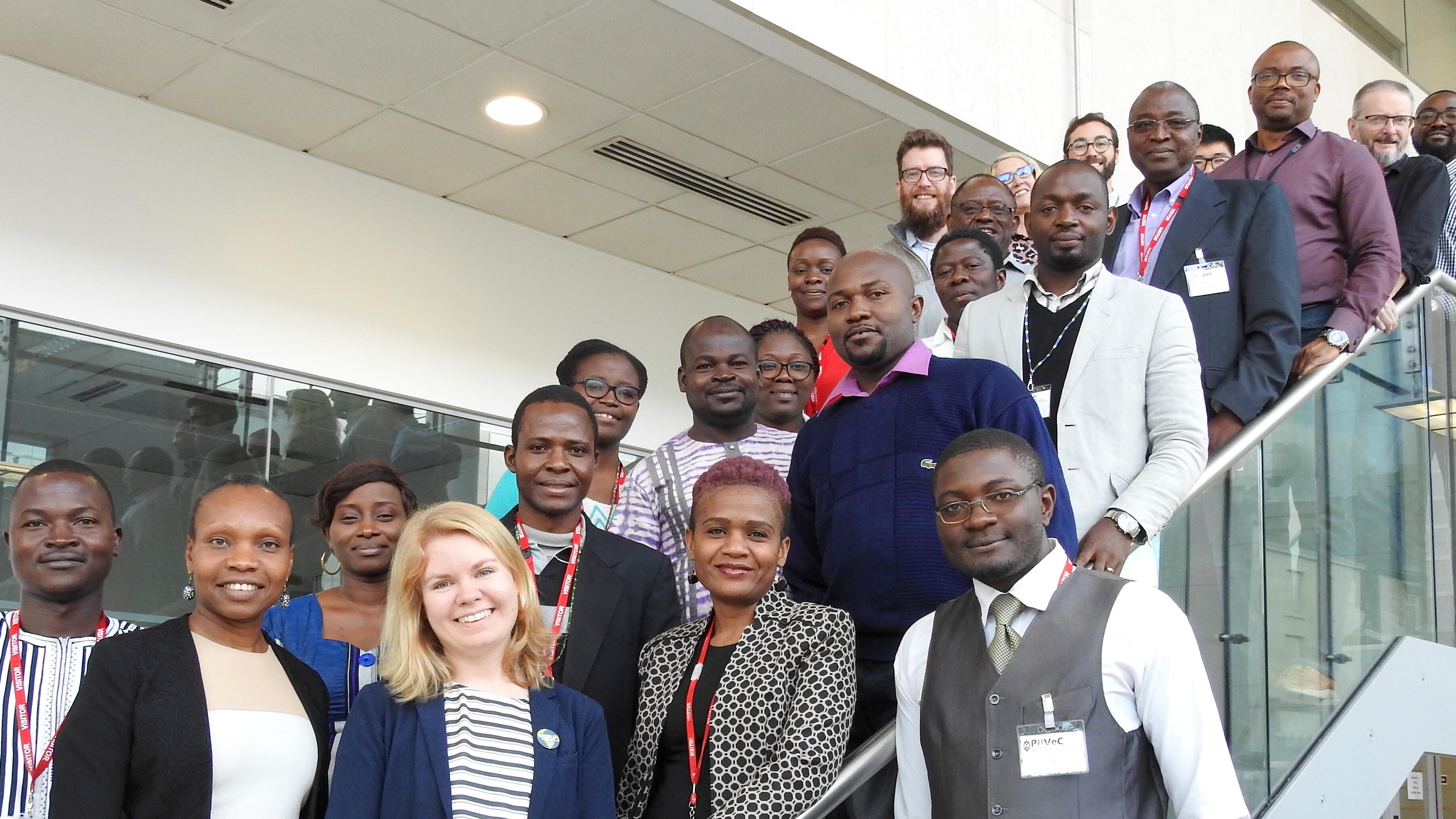
The Partnership for Increasing the Impact of Vector Control (PIIVeC), co-ordinated by LSTM’s Professor Hilary Ranson, are holding a training event in Liverpool, bringing together in one place their 10 postdoctoral fellows.
PIIVeC was formed in October last year following an award of £6.5 million from the RCUK’s Global Challenges Research Fund and aims to address a shortage of researchers working on new tools to control the vectors of malaria and other vector-borne diseases. The PIIVeC fellows form the core of individual capacity strengthening activities for the programme. They are post-doctoral level researchers from Burkina Faso, Cameroon, Malawi, and Kenya working on various aspects of vector-borne disease control.
To kick off a series of professional development activities, they are all at LSTM from 7-26 October to participate in core training and networking events. They will receive “taster sessions” on various research disciplines including qualitative research methods, experimental design, geographic information systems, statistical analysis and health economics, as well as sessions on more generic skills required for all researchers such as project management, data management, interviewing and recruitment skills and social media. This week, they are participating in interactive sessions on evidence uptake and how to make the most impact with their research. This training is being facilitated by the group’s partners the African Institute for Development Policy (AFIDEP) and is critical for the PIIVeC Fellows.
LSTM’s Eddie Thomsen is PIIVeC’s Programme Manager. He said: “We hope it will enable them to appreciate the links between research and policy. The skills they gain will equip them to conduct research into vector-borne disease and ensure that this research has an impact on policy and implementation. We aspire that the fellows will be the future African research leaders and these training and network events will contribute to a solid foundation for them.”
The fellows are part of PIIVeC’s initiative to strengthen the capacity for vector control in Africa and their research projects are multidisciplinary and bridge multiple vector-borne diseases. In addition to generating evidence through research, they will also be participating in bespoke professional development activities, including mentoring relationships, international conferences, and strategic secondments.